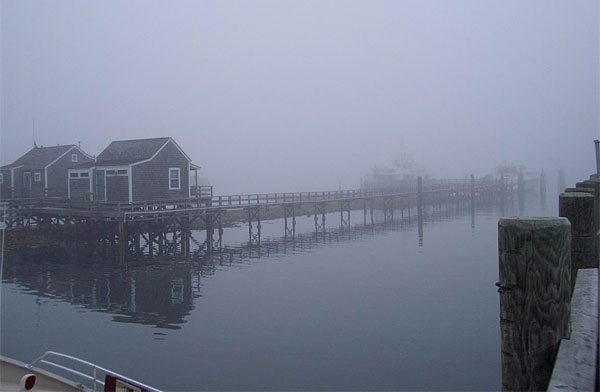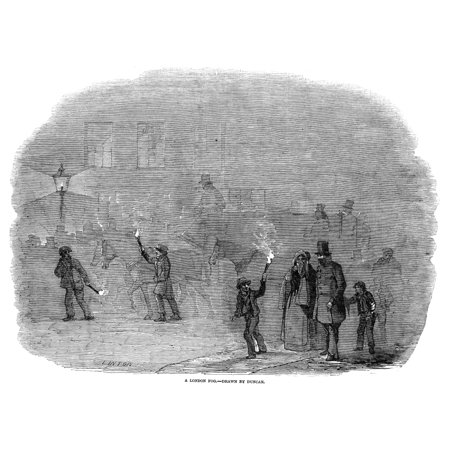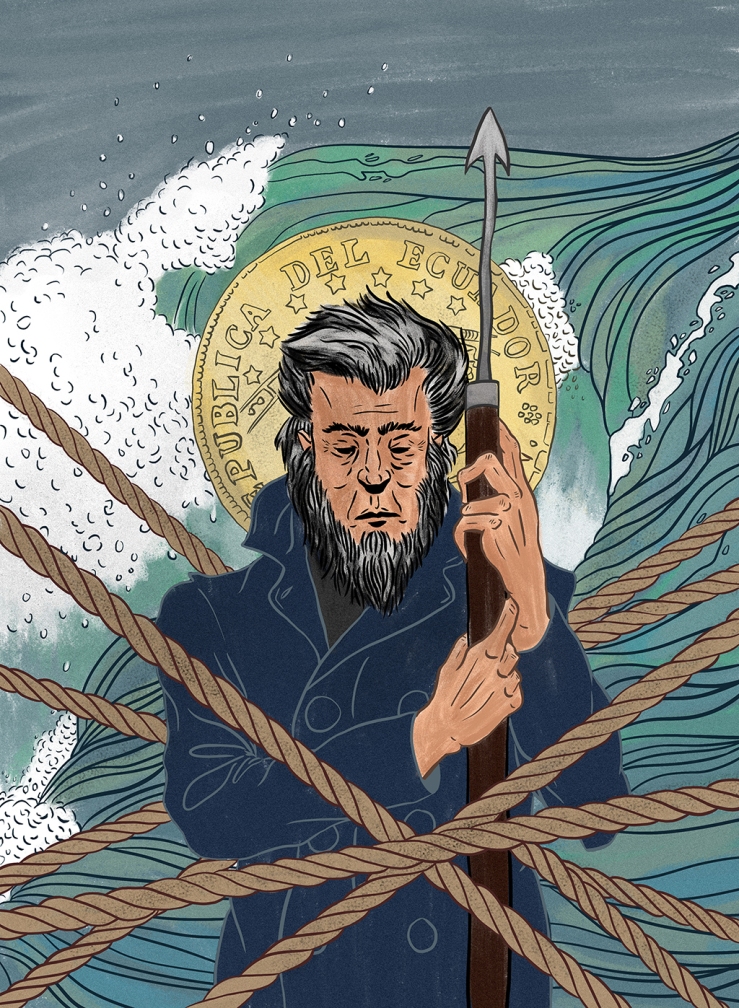It’s time! Time to get in a boat and go hunt some actual, factual, living whales.

Well, it’s not quite time for the hunting part yet, but it is time for this most famous of American maritime novels to actually get to the part where they’re on the ocean. Technically, they’ve already been there, it’s hard to avoid when you’re going to Nantucket, but you know what I mean! The whaling voyage! It’s… well, it’s time to go aboard, as the title says. Let’s get into it.
SUMMARY: Ishmael and Queequeg are on their way to board the Pequod, early in the morning. Through the fog, Ishmael spots a group of five human figures hurrying ahead of them, in the direction of the Pequod. Before he can get a better look, Elijah the prophet catches his and Queequeg’s shoulder, and delivers more mysterious advice, making reference to the shadowy figures. He repeats this several more times, delivering more vague and mysterious warnings, before finally leaving them alone. Ishmael and Queequeg find the ship quiet, with all doors locked and hatches closed. There is no sign of the mysterious figures, which Queequeg now says he did not see. They go into the forecastle, and find a rigger sleeping there. The pair sit down, Queequeg on the man’s butt. Ishmael objects, to which Queequeg claims that it is a common practice in his homeland, but nevertheless moves off to the side. They begin smoking, sharing Queequeg’s pipe, which eventually wakes the rigger. They learn that Captain Ahab has come aboard, but has locked himself in his cabin. Before they can learn more, the rigger jumps up and gets back to work, saying that the first mate, Starbuck, is also now aboard. The rest of the crew arrives throughout the course of the morning, and the last few essential items are loaded, as the ship prepares to leave port.
Ah, if you’re reading along, you should really savor these chapters that have a sort of direct narrative. In the near future, we will be leaving this sort of thing behind. But, this is important setup, for one of the longer running mysteries in the book.
I speak, of course, of those mysterious figures that Ishmael spots through the early morning gloom. It would be easy to dismiss them as a mere phantom, another omen of disaster perhaps, but Elijah talks about them somewhat directly, so you know they must be important.

It’s funny, Ahab is probably the most famous character in Moby Dick besides the eponymous whale himself. But here we are, 20 chapters into this monster of a book and he’s yet to make an appearance in the flesh. If you ask someone what Moby Dick is about, they’ll tell you it’s about Ahab’s quest for revenge, but that also has yet to be revealed, and won’t be for some time.
Another way that books are changed by context, I suppose. When it was first published, a reader would have some sense that Ahab was perhaps going to cause some problems on this voyage for our buddies Ishmael and Queequeg, but would have no notion of what that would actually entail. Heck, at this point they’d probably still think this was going to stay a straightforward narrative about one man’s experience in the whaling fishery!
Nowadays, this book has a powerful reputation. For greatness, sure, but of a very intimidating sort. It’s not really known to be good so much as it’s known to be important, which means that not a lot of people actually read it. That’s a real shame! The fact that it has become regarded as the first Great American Novel and was the bane of high school students for many years also probably don’t help.
A book being important, in some sense or another, does not necessarily mean that it is engaging or entertaining for a layperson to read. Especially with books that are over a hundred years old, you’ll run into archaic language and references that may cause you to stumble and get discouraged.
It is true that Moby Dick is not exactly light summer reading, but it is also not as rough as its reputation would indicate. People love to say how groundbreaking and important it is, but they rarely say how funny it is. They rarely make reference to the wonderful prose it contains, to the colorful cast of characters.
Anyway, let’s get back to this chapter.
The encounter with Elijah is, I think, very funny, one of my favorite bits in the book. Right after Ishmael spots some mysterious shadows, Elijah just walks up right behind him and grabs his shoulder, and starts talking in riddles again right away. They walk away, but he does it again, several more times, bidding them good morning and making like he’s leaving them forever each time. I can’t believe they cut this out of every film adaptation, it’s so good.

What these mysterious figures portend is actually something interesting: the split of the narrative into two separate tracks. On the one hand, we have what we’ve seen so far: Ishmael’s entry into the whaling business, having fun adventures with his new pal Queequeg. But there’s another narrative, which is actually the much more famous one, as I mentioned before: Ahab’s Epic Quest for Vengeance. I know it’s not strictly correct, but I simply cannot help using capital letters there, it’s so full of gravity and consequence.
Every person treats their own life as if it were a narrative, to one degree or another. It’s how we human beings make sense of life, but we can also get stuck in it. Believing that there is some silver bullet out there, that we just need to follow some sort of rule about what you’re supposed to do, and then things will go right. This is basically Ahab’s whole deal, he has suffered a horrible trauma and the way he’s coping with it is to believe himself to be some sort of epic hero, with his own special destiny he must follow through.
The degree to which other characters, the fictional author Ishmael, or the real author Herman Melville, buy into this is an interesting question. But, for now Ahab remains invisible, an unseen presence that yet warps the narrative, and even the very language of the book.

Besides all that, there’s not a lot of substance to this chapter. Just setting up that mystery, then a bit if fun business with Elijah and then the sleeping rigger. Queequeg tells another anecdote about his homeland, where chiefs would hire lazy people to be furniture for them.
I suppose you could read into that that it’s another sort of parallel between the whaling business (and capitalism) and the cannibal society that Queequeg hails from. Both treat the human body as merely another resource, to be used up as it may. Here we see that not only do the Rokovokans eat the slain dead, but they make casual use of the bodies of the living as well, merely for their own comfort. The same could be said for any businessman, making use of the labor of his employees to increase his comfort. We’ve certainly heard a lot about how deadly the whaling business can be.
Damn, I hadn’t even made that connection, that’s gotta run pretty deep. I mean, it could be that Melville was just drawing on his experiences and knowledge of actual south pacific cultures, but that is a definitely a strong parallel. Doesn’t even really matter if it’s accidental, death of the author and all that.
Whew, that was a heck of a tangent. And I still have capitalism on the brain. These days, it is never far from my thoughts.
This book is just about to kick into high gear. We’re gonna start getting chapters that are 50 pages long, followed up with ones that are only a single short paragraph. Big, long, philosophical monologues, in-depth character descriptions, all that good stuff, as we finally embark on the voyage of the Pequod!
Until next time, shipmates!
